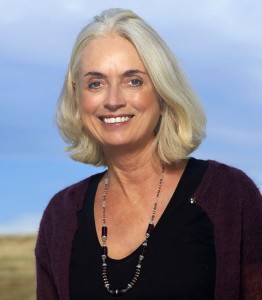For many Americans, Kansas is the ultimate fly-over state, and God help you if you have to drive through Kansas.
Or so I always thought until 2006 when I was driving across country from my former home in West Virginia to my new home in Colorado. It’s true: Kansas is flat, and it seems to go on forever. Not even Colby, the self-proclaimed “Oasis of the Plains,” did much to break up the miles.
But I discovered something on that trip: Kansas is beautiful, especially its spectacular sky, stretching out, indeed, forever.
A month after I had arrived in Boulder, I shared a stage at a literary reading with memoirist Julene Bair, who had herself just moved to the Front Range. I still remember vividly – in a visceral way – the selection she read. She told of swimming in her family’s tail-water pit and stock tank, a setting that was as unfamiliar to me as anything someone could possibly conjure up.
For Julene was a western Kansas farm girl. That night, I bought her 2000 book, One Degree West: Reflections of a Plainsdaughter, a collection of essays about her childhood in western Kansas. I read the book quickly. In fact, it might be more accurate to say I inhaled it. I love memoir, and Julene’s writing was just so good. I drank in every word.
After that first meeting, Julene and I became friends, sharing tales of the writing life, and I loved hearing how her new book – a full-blown memoir – was developing. It would tell of her and her family’s long, complex, and difficult relationship with the Ogallala Aquifer. Part family memoir, part personal journey, part historical and environmental treatise, The Ogallala Road: A Story of Love, Family, and the Fight to Keep the Great Plains from Running Dry would bring together virtually all of the major threads in Julene’s life.
The book – published by Viking Press in 2014 – beautifully fulfilled its promise. And I was so pleased to see the scene of the adult Julene, the prodigal daughter returned home to the family farm after years away, swimming in the tail-water pit.
The reader keeps turning the pages to see what Julene and her family ultimately decide to do with the family farm. As her parents age, then die, will Julene – who is completely at home with dirt under her nails and at the wheel of a tractor – stay and try to make a go of things? Or will she and her surviving brother decide to sell and move on to their modern lives?
I suppose the fact that I met Julene in 2006 after she had moved to urban Colorado and that I met her when she was writing about Kansas rather than living in Kansas tells you something about what she decided.
But it’s not as easy as that – and indeed, where she ended up in relationship to her Kansas roots is a surprise, perhaps most of all to Julene.
I strongly recommend both of Julene Bair’s beautiful books – lyrical and gritty at the same time. One Degree West won the prestigious WILLA Award for Women Writing the West (named in honor of Willa Cather), and The Ogallala Road
has won the Booklist Editors’ Choice Award, Colorado Authors’ League Award for Creative Nonfiction, and the Kansas Notable Book Award. It has been reviewed in the New York Times and was an Elle Magazine Readers’ Pick. For links to radio and television interviews with Julene, visit her website.
Don’t forget to leave a comment on this post! You’ll be entered into a monthly drawing to win a StoryWeb T-shirt if you do one of the following. 1) Subscribe to the weekly StoryWeb email, and leave a comment here (or on any other post!). 2) Subscribe to the StoryWeb podcast in iTunes, and leave a review on iTunes. (If you subscribe on iTunes and leave a review there, shoot me an email at linda@thestoryweb.com to let me know you did so!)
Podcast: Play in new window | Download
Subscribe to StoryWeb in iTunes.Listen to the podcast in Stitcher.
Image Credit: Photo courtesy of Julene Bair.
